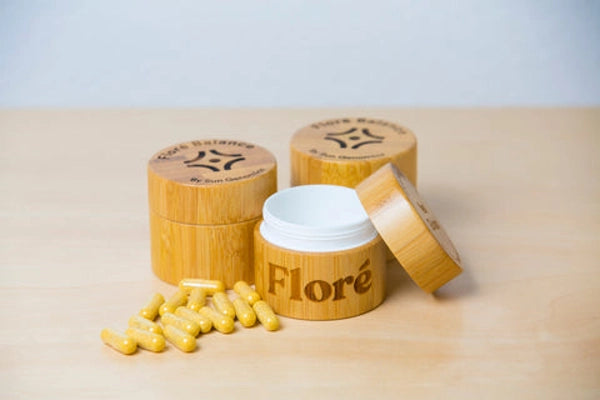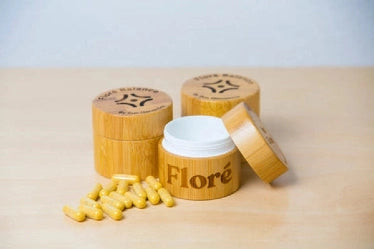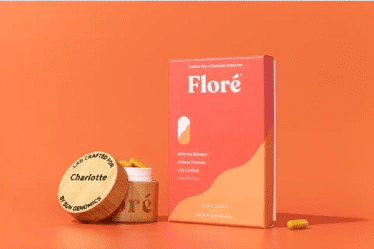Prebiotics vs. Probiotics and What They Do for Your Body
You are what you eat. If you feed your body junk, then you feel like junk; if you feed it healthy foods, then you feel healthy. But more and more, we are realizing that functional foods have a deeper connection to our health and wellbeing.
Functional foods are foods that have a positive effect outside of basic nutrition, such as promoting optimal health or reducing the risk of disease. And all of that connects to—you guessed it—the gut microbiome.
Probiotics have seen a massive upswing in recent years as research into the gut microbiome shows just how deeply intertwined it is into all aspects of wellness. And while it's always a good idea to incorporate fermented foods and other good bacteria into your healthy gut plan, it's time to talk about prebiotics.
Prebiotics vs. Probiotics
Sometimes (understandably) people confuse prebiotics and probiotics. In the simplest terms, prebiotics are the nutrients that feed probiotics, but it's a little more complex than that.
The gut microbiome is made up of all kinds of living organisms including bacteria, fungi, viruses, etc. that live inside your intestines. Some aid in the digestion, absorption, and creation of essential nutrients in the body. Others, not so much. And depending on a variety of factors that range from disease to genetics, the composition of that microbiome can change.
When we take probiotics, we're ingesting active good bacteria and yeast in the hope of directly depositing them into the intestines. They do not typically feed existing microflora but instead supply outside help. If the internal environment of your intestines is primed for probiotics, then these organisms multiply, taking root in the microbiome and crowding out harmful bacteria.


“Priming” the intestines means making sure there is enough food for the probiotics you are introducing into your gut so they can thrive. That's where prebiotics come in.
Many of the foods we consume are digested immediately in the upper gastrointestinal (GI) tract, but non-digestible carbohydrates and fiber pass through to the colon. These are prebiotics. Once in the colon, microflora ferment prebiotic compounds into short-chain fatty acids, which are then released into the bloodstream and into other organ systems.
So, while it wouldn't be wrong to think of prebiotics as food for your microbiome, it also wouldn't be completely accurate. Prebiotics feed the probiotics, which then transform the prebiotics into something else. They work together symbiotically to deliver essential nutrients throughout the body.
Prebiotics on the market
Research on the gut microbiome has exploded in recent years because of technological advances, so scientists are just beginning to explore the prebiotic/probiotic relationship. But that relationship isn't the only reason prebiotics have seen increasing interest.
The potential health benefits of probiotics rely entirely on whether the microorganisms can survive the upper GI tract to make it into the small intestine and colon. As such, not all probiotics are created equal. Prebiotics, however, are much more travel-friendly, consistent, and keep exceptionally well.
The potential to not only improve the current state of the human gut microbiome but also increase the efficacy of probiotics is great. Scientists are actively attempting to manufacture prebiotics on an industrial scale; specifically, fructooligosaccharides and galactooligosaccharides, which only naturally occur in foods in low quantities.
... Wait, do I need prebiotics to take probiotics?
If you are serious about achieving balance, promoting health, and boosting energy, chances are you are already following a diet rich in fiber. If that's the case, you may be getting all the prebiotics that you need. The chances of that, however, are not likely. According to the American Dietetic Association, healthy adults should have a daily intake of 25-38 grams of dietary fiber; most individuals in the United States consume around 15g.
That divide is even greater for people recovering from digestive stress. Those who suffer from IBS, for example, follow a low FODMAPS diet that may restrict insoluble fiber intake. Inulin (a fructooligosaccharide) and psyllium, two fiber supplements that are widely available on pharmacy shelves, can help those who suffer from IBS heal. Check with your doctor to determine which fiber best suits your symptoms.
Do you need prebiotics? Absolutely. Do you need a prebiotic supplement? It depends on the current state of your gut microbiome. It starts with testing your gut. At Sun Genomics, we analyze the trillions of microbes in your gut microflora, then we craft a one-pill-a-day custom formula made just for you and cold ship it directly to your door. Our personalized probiotic formulas are made with a blend of prebiotics, probiotics, and natural botanicals to support your specific health needs.


